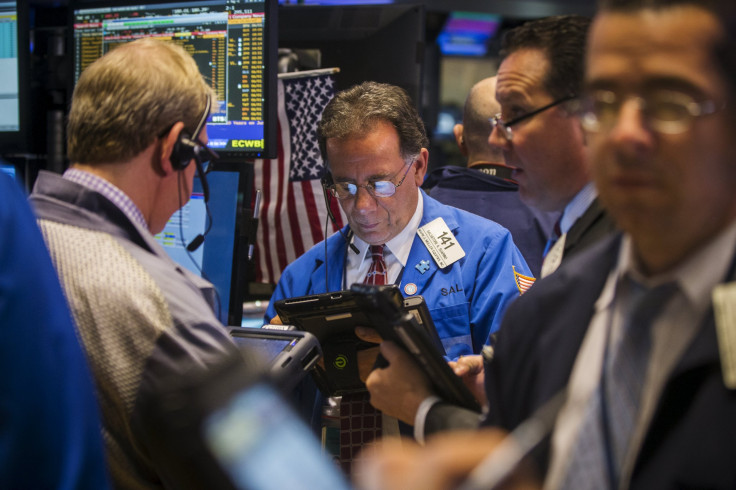Dow Jones Industrial Average: Intel Corporation (INTC) Leads Blue-Chips Lower On Stock Downgrade

U.S. stocks closed slightly lower Tuesday as investors eyed Greece's ongoing debt crisis. Wall Street pared losses in afternoon trading after the Dow Jones Industrial Average dropped 100 points in the morning session.
The Dow Jones Industrial Average (INDEXDJX:.DJI) dropped 28.43 points, or 0.16 percent, to close at 18,011.94. The Standard & Poor's 500 (INDEXNASDAQ:.IXIC) dipped 2.13 points, or 0.1 percent, to end at 2,109.60. The Nasdaq composite (INDEXSP:.INX) fell 6.40 points, or 0.13 percent, to finish at 5,076.52.
Intel Corporation (NASDAQ:INTC) led the Dow lower Tuesday, shedding 2 percent to close at $33.26 after the chipmaker was downgraded by BMO Capital. The company announced a day earlier it is buying Altera Corporation (NASDAQ:ALTR) in an all-cash transaction for $16.7 billion.
"We do not like Intel's acquisition of Altera," Ambrish Srivastava, analyst at BMO Capital, said in a research note Tuesday. The firm cut its rating on Intel to "market perform" from "outperform" and slashed its 12-month price target on the company to $33 from $40.
Dow component UnitedHealth Group Inc. (NYSE:UNH) lost 1.8 percent.
Tuesday's declines in the S&P 500 were led by the utility sector, with CenterPoint Energy Inc. (NYSE:CNP) dropping 2.5 percent.
Wall Street is looking ahead to Wednesday’s economic calendar, which includes the monthly ADP National Employment Report on private sector job creation in May, a widely used preindicator for the U.S. labor market ahead of Friday's jobs report. Economists forecast U.S. private employers added 200,000 positions in May after fewer jobs were created in the private sector in April (169,000), according to analysts polled by Thomson Reuters.
The U.S. dollar index, which measures the greenback against major world currencies, dropped 1.5 percent Tuesday after hitting a 13-year high against the Japanese yen. Expectations Greece would reach a deal with its creditors helped push the euro above $1.11 against the dollar, putting the greenback on track to post its biggest one-day loss against the euro since March.
U.S. motor vehicle sales for major auto companies, including General Motors Company, Ford Motor Company and Fiat Chrysler Automobiles, jumped by 7.6 percent in May to a nine-year high annualized rate of 17.7 million in May, up from 16.5 million the prior month.
The figures follow disappointing data Monday that showed consumer spending was flat in April. However, experts say the U.S. consumer isn't quite as stingy as recent data suggest.
“If consumers were feeling confident enough to boost their spending on motor vehicles last month, which is traditionally the most discretionary of purchases, then there is a good chance they boosted spending on other goods and services too, even as gasoline prices were rebounding,” said Paul Ashworth, chief U.S. economist at Capital Economics.
© Copyright IBTimes 2025. All rights reserved.






















